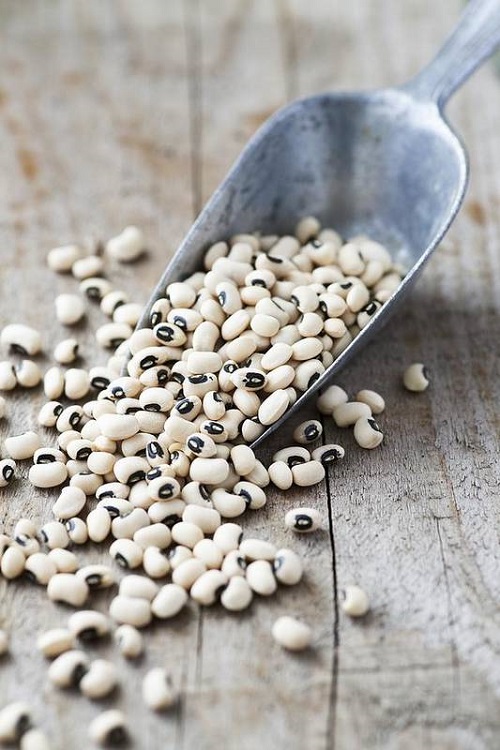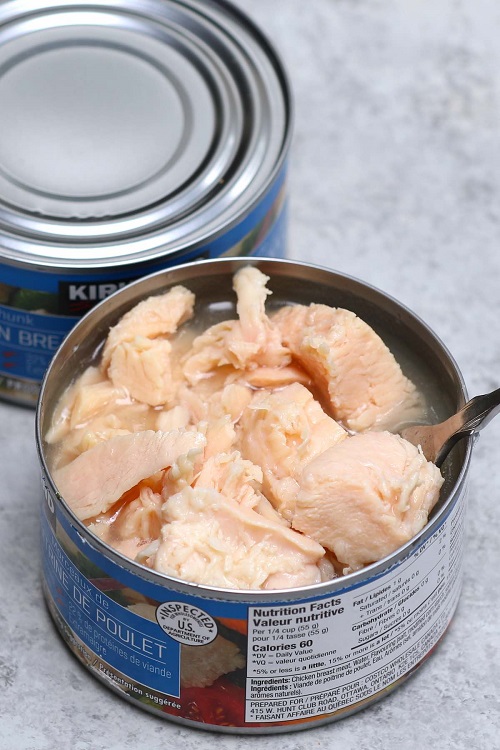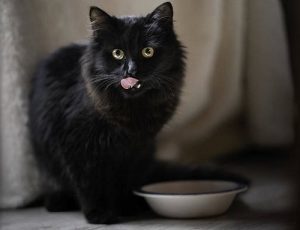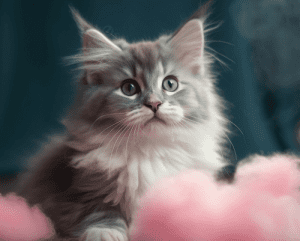Curious about feline-friendly legumes? Find out the answer to Can Cats Eat Black Eyed Peas and satisfy their taste buds without any perils!
Cats are known for their finicky eating habits, which can leave owners with several questions about what is safe for them to eat. One such question is, “Can Cats Eat Black Eyed Peas?” Let’s find out the answer below!
Find Out Can Cats Eat Beans here
What Are Black-Eyed Peas?

Black-eyed peas are also known as cowpeas or black-eyed beans. They are a type of legume that belongs to the family Fabaceae. These beans are small, creamy white with a distinctive black spot, which gives them their name. Originating from Africa, black-eyed peas have become popular worldwide for their nutritional value and versatility in various cuisines. They are rich in fiber, protein, and essential nutrients like folate, iron, and potassium. Many dishes commonly use these peas due to their slightly nutty flavor and soft texture. These dishes include soups, stews, and salads.
Can Cats Eat Black Eyed Peas?
Yes, cats can eat black-eyed peas in small quantities as long as they’re cooked and not served with any seasoning, like garlic or onions, which are toxic to felines. However, cats primarily require animal protein for optimal health. Plant-based foods like black-eyed peas should never replace their primary diet.
Are Black Eyed Peas Good for Cats?

While black-eyed peas are not harmful to cats in small amounts, they do not provide significant nutritional benefits. Cats’ bodies primarily thrive on a diet consisting of animal protein. Plant-based foods like black-eyed peas lack essential nutrients that kitties require, such as taurine, which is crucial for their health. Therefore, it’s best to focus on a balanced and species-appropriate diet specifically formulated for their nutritional needs.
Are Black Eyed Peas Toxic to Cats?
Black-eyed peas are not toxic to cats. Feeding felines large amounts of black-eyed peas or other legumes can cause digestive upset, including gas, bloating, and diarrhea. The article will further discuss these potential issues in detail.
Note – It’s always best to consult a vet before introducing new food into your cat’s diet.
Potential Health Issues of Feeding Blacked-Eyed Peas to Cats
- Nutritional imbalance: Cats have specific dietary requirements, including a need for high-quality animal protein and essential nutrients like taurine. Black-eyed peas are not a primary source of these nutrients and do not provide a balanced diet for cats.
- Digestive upset: Felines have a sensitive digestive system, and introducing unfamiliar or plant-based foods like black-eyed peas can lead to gastrointestinal issues such as gas, bloating, or stomach upset.
- Allergic reactions: Cats can develop allergies or sensitivities to certain foods, including legumes like black-eyed peas. It’s important to monitor for any signs of allergic reactions, such as itching, skin problems, or gastrointestinal distress, if you decide to offer black-eyed peas to your cat.
It’s essential to prioritize a balanced and appropriate diet specifically formulated for cats to ensure their overall health and well-being.
Alternatives to Black Eyed Peas for Cats

When looking for alternatives similar to black-eyed peas for cats, consider the following options:
- Green peas: Green peas are low in calories and can provide some dietary fiber, thus a good option for cats. However, moderation is key.
- Lentils: Lentils are great in small amounts as an occasional treat. They provide some protein and fiber.
- Pumpkin: Plain, cooked, and mashed pumpkin can be beneficial for kitties. It’s rich in fiber and can aid in digestive health.
- Sweet potatoes: Instead of peas, you can feed sweet potatoes to cats as an occasional treat. They are a good source of vitamins and can provide some dietary fiber. Be sure to cook them thoroughly and remove any seasoning or added ingredients.
- Canned chicken: Canned chicken is an ideal alternative to black-eyed peas for kitties, especially if you’re looking for a plant-free option. It provides a meat-based protein source that aligns with a cat’s natural dietary needs as obligate carnivores. Canned chicken is typically moist and easy for cats to chew and digest, making it a convenient option for both treats and meal toppers.
Always consult with a veterinarian before introducing any new foods to ensure they are safe and appropriate for your cat’s individual needs.
Can Cats Eat Black-Eyed Peas? Quick Takeaways!
- Black-eyed peas are a type of legume with a distinctive black spot.
- This legume is not toxic to felines in small quantities.
- The potential health issues of feeding excessive black-eyed peas are nutritional imbalance, allergic reactions, and digestive upset.
- Green peas, lentils, pumpkin, canned chicken, and sweet potatoes are good alternatives to black-eyed peas.



